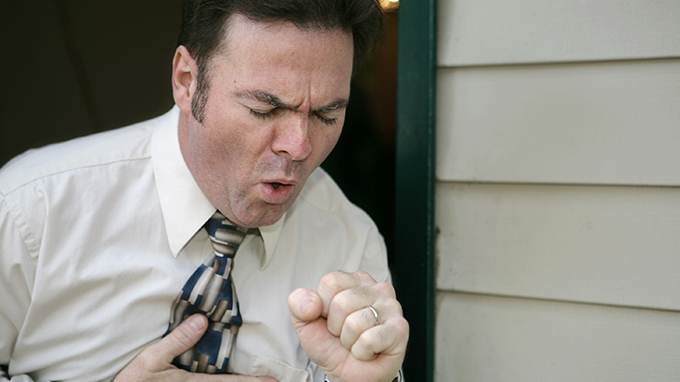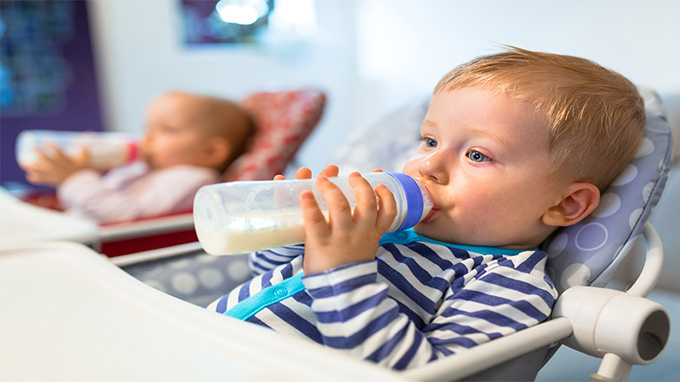Baby's cold medicine is wrong
When a baby catches a cold, there will be some symptoms that make her mother have a headache, such as a runny nose, a cough, a fever, and so on. Faced with these situations, many mothers will be helpless.

What causes cold in early winter< /p>
Cold and hot alternating frequently
Cold is a common name, Western medicine called "upper respiratory tract infection", which refers to acute inflammation of the nasal cavity, pharynx or throat Overview. When the seasons change, especially in the early winter season, the weather changes unpredictably, the cold and hot alternate frequently, and various bacteria or viruses are very active. At this time, the child''s tender respiratory tract is most likely to be infected.
"Malnutrition"
Nowadays living conditions are better, there are not many children with real malnutrition, but more and more obese children, these picky eaters Children seem to be strong, in fact, many of them are "complex" (repeated colds). Excessive protein and fat will make the child''s nutritional structure unreasonable and lack of many trace elements. These factors will cause the child''s immune regulation to be dysfunctional , Causing infection.
Immunity is lower than adults
The baby’s immunity is gradually increased with age, and the baby’s immunity is not yet perfect in early childhood. Much lower than adults. Therefore, the baby''s ability to resist external invasion is poor, which is also an important reason for easy colds.
Inappropriate care
There are many places in the daily life that care for children improperly. Nowadays, every family is a child and overprotected, for example, adding supplementary food Reasonable, the child is too clean, let the child drink milk before going to bed, wear too much clothes in winter, turn a blind eye to the child''s partial food and so on. Imagine a flower that always grows in a "greenhouse." How can I see a rainbow without going through wind and rain? In addition to the child''s own reasons, there are many external factors that cause the child to catch a cold, such as air pollution, passive smoking, abuse of antibiotics, etc. Some of us It can be improved, some we have no choice.
Baby cold and slow medication
Aim for various cold symptoms and use medication slowly. The so-called symptom is that the human body eliminates the uncomfortable reflex. When it is not serious, do not use medicine to suppress it.
Runny nose, stuffy nose
If the child has a runny nose or sneezing is not serious, or the child is over 3 years old, what medicines are used to deal with these phenomena No need to eat, just let your child drink more water and rest more.
If the symptoms worsen, the child is very uncomfortable, or the child is too young to be poorly tolerated, you can use some anti-cold medicines, such as children Tylenol, Ai Chang, compound paracetamol and anesthesia oral solution , Hu Tong, Chen Gong Zai Xin, etc. It is best to go to the hospital to buy medicines. Please read the instructions before buying medicines privately. Do not buy medicines that are not suitable for your child''s age. These drugs are not recommended to be taken for a long time, usually two or three days. If the symptoms get worse, you need to go to the hospital for medical treatment.
Cough
Antitussive drugs, because they are over-the-counter drugs, parents can buy them at will in pharmacies, so it is easy to be abused by everyone. Cough is a defensive physiological reflex of the human body. In the clinic, doctors rarely give cough medicine to children who cough, but instead use the medicine for the original disease that caused the cough. After the cause is removed, the cough will be natural. Unless the child''s cough is severe enough to affect sleep or eating, and it is not conducive to the recovery of the disease, the cough medicine will be selected according to the specific situation. Mother can let the child drink warm water, which is helpful to relieve cough.
Fever
It is relatively safe to use antipyretics on the basis of knowing the cause. Usually, when the child has a fever, physical cooling is preferred, such as drinking more water or dextrose water, wiping with warm water, etc. If treated, the child''s body temperature does not exceed 38.5 ℃ or quickly drops below 38.5 ℃, there is no need to use antipyretics . If the fever does not go down, you can take oral antipyretics (such as ibuprofen or acetaminophen). If the effect is not obvious, the fever will not go down after taking two or three times. Take the child to the hospital immediately.
Poor appetite, abdominal pain or vomiting
After a child becomes ill, the gastrointestinal function will naturally be adversely affected, usually without taking medicine, and the appetite will naturally occur after a few days Back to normal. If your child has slight abdominal pain or vomiting, you can use some digestive drugs, such as pepsin, pancreatin, etc., to help your child reduce discomfort. If your child''s symptoms get worse, you need to go to the hospital, and don''t give your child anti-vomiting medicine or analgesics.
Although the medicine is not used in the case of mild symptoms, the child''s condition changes rapidly. If the condition is serious, the child is younger than three years old, even if it is a common cold, it is recommended that parents take the child to the hospital for treatment.
Do not use gamma globulin casually
For children who love colds, many parents diagnose their children’s “immunity” without any tests "Low", even asked the doctor to give the child some special medicines, such as intravenous gamma globulin.
In fact, this understanding of parents is not correct, and there are very few children who are really immune-compromised. It can be understood in this way that most children''s immune systems are not inherently perfect and are gradually established. Whenever an infectious bacterium invades the body, the immune system stores the information to prevent the next infection, and can launch a more powerful attack on the bacterium. Therefore, it can be inferred that the immune system possessed by infants and young children who have no or few infections has increased the immunity of adults who have experienced multiple infections and have increased the ability to fight infections in the process of fighting the germs. The system is much weaker.
So, don’t suspect your baby’s immunity if you get sick two or three times, let alone use gamma globulin. I am really worried that I can go to the hospital to check the cellular immunity and humoral immunity, and it is not too late to use the medicine.
Related Articles

- Children's bronchial asthma diagnosis and prevention guide
- Bronchial asthma (hereinafter referred to as asthma) is the most common chronic disease in childhood. The prevalence of childhood asthma in China has increased significantly in the past ten
- 2020-08-02

- Newborn pneumonia, what should parents know
- One day, when I went to the outpatient clinic, a young couple came to the clinic with a child who was just a few days old. They said they had just come from another hospital and they had d
- 2020-08-02

- See the number of colds to understand immunity
- Children''s immunity is still improving, and they are more likely to get sick. Therefore, what most parents care about is what they eat to improve the child''s immunity, so
- 2020-08-01

- For children with asthma, choose Chinese medicine or Western medicine
- The newly admitted young patient, 5 years old, girl, has a bad spirit and is coughing constantly on his father''s shoulder. As soon as the stethoscope touched the back of the child,
- 2020-08-01

- Keep children away from coughing
- (1) Acute cough and chronic cough From the perspective of diagnosis, we artificially divide cough into three categories: acute cough, subacu
- 2020-08-01

- Children's common diseases in summer
- Recently, from the outpatients in our hospital, the most common are upper respiratory tract infections (commonly known as colds), then chickenpox, hand, foot and mouth, mumps, scarlet fever
- 2020-08-01
